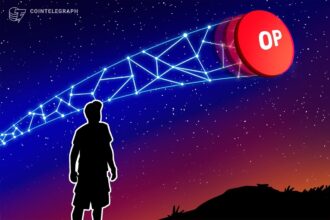Quantum Experiments May Probe the Existence of Free Will
New Scientist reports on research suggesting quantum physics experiments may soon address the age-old question of human free will.
Researchers are designing intricate quantum experiments to test whether our choices are fundamentally independent of external physical influences. These experiments directly challenge the long-held assumption of “measurement independence” within quantum entanglement—a cornerstone of interpretations like Bohmian mechanics—which posits that hidden variables do not dictate the measurement settings chosen by experimenters.
Refining Bell’s Inequality
These tests build upon John Bell’s 1964 theorem, which quantifies the non-local correlations observed in quantum entanglement. These correlations, termed “hidden” per the researchers, suggest instantaneous coordination between particles separated by vast distances.
The scientists, including Prof. Adan Cabello from the University of Seville, refined Bell’s theorem (“measurement independence assumption”) by considering scenarios where experimenters possess only partial free will. According to University of California San Diego philosopher Prof. Eddy Chen, this refinement does not invalidate Bell’s theorem but expands its applicability and implications.
Free Will: Still Elusive, Yet Crucial
While acknowledging that a definitive link between quantum mechanics and free will requires empirical validation (or its absence), Chen emphasized the profound difficulty in defining the very concept.
“Even those deeply engaged in the study struggle with definitions,” Chen explained. “This is primarily because the nature of free will remains a deeply contested philosophical issue. Defining free will is necessary but contested.” He further added:
> “The concept of free will has deep roots in Western thought, evolving from Greek philosophy and Christian theology through the Enlightenment. […] Science can inform philosophical quandaries but often remains neutral on fundamental questions.”
Chen clarifies that science can test assumptions leading to philosophical conflicts (like those between omniscient God concepts and free will/stewardship), but cannot definitively prove or disprove free will without a universally acceptable definition.
Partial Freedom Still Rules
The new approach reframes the question. Rather than being “either free will exists or it does not,” the research recasts it as “does the system behave as if free will existed, even partially?”
“If you accept [partial free will], others may not,” Chen notes. “But substantial freedom—any form—is sufficient to make Bell’s analysis hold. […] Science can still probe this territory, even with murky definitions.”
The ongoing research aims not so much to declare human nature definitively, but to fundamentally change our manner and framing of understanding it.












